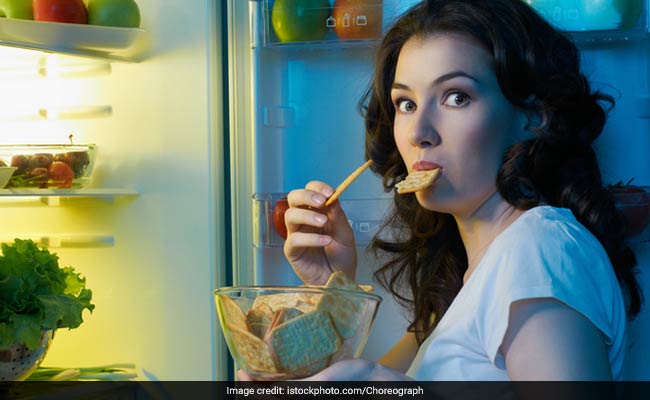Continue reading this article as we discuss signs that you don't have a healthy relationship with food.

Feeling shameful or bad about eating certain foods or at certain times may be unhealthy
Food acts like fuel for the body. Oftentimes, in the culture of diets and calorie counting, we forget how important food is for us. Food helps nourish our bodies and makes sure our bodies run to the best of their abilities. Hence, it is important to eat the right food and eat ample of it.
Trying to follow a ‘healthy' diet can often affect your relationship with food. Be it skipping meals or obsessively calorie counting, there are various signs through which you can identify whether or not you share a healthy relationship with food. Continue reading this article as we discuss signs that you don't have a healthy relationship with food.
Signs you have an unhealthy relationship with food:
1. You are thinking about food constantly
Food shouldn't be the only thing on your mind, as long as you have enough to eat when you're hungry. Even after eating, if you find yourself thinking about food all the time, this could indicate a more serious problem.
2. You feel the need to burn off all the calories you eat
After eating, you experience the urge to burn off the calories. This isn't about going for a quick circuit around the block after a particularly filling dinner to aid digestion. It occurs when you believe you must expend each and every calorie you consume and feel bad if you don't or are unable to.
3. Feeling bad for breaking food-related ‘rules'
When you consume anything you're not meant to, you experience shame. You put rules on yourself to stay away from specific meals you consider to be "bad," and you punish yourself when you break them. For example, eating food before bed.
4. You're ignoring food cravings
You refuse to feed your true cravings. Understanding what you require and desire from your diet, and consuming to satisfy both, whether that means having dessert every day or just on rare occasions, is a necessary part of having a good relationship with food.
5. Eating around others seems embarrassing
You may have an unhealthy relationship with food if ordering and eating food in front of others causes you to become self-conscious and you consistently would rather eat by yourself. This is especially true if you avoid eating in front of others because you feel ashamed or embarrassed regarding your eating patterns or favoured foods.
6. You constantly try diets that don't work out
If you keep trying new diets but they don't appear to work, you might have a bad attitude towards food, losing weight, and your general health. People who constantly switch between different diets may also frequently start a brand-new, extremely rigorous diet before giving up and going back to their regular eating habits.
7. You feel guilty or bad after eating
Even when you consume "healthy" foods, you could experience guilt or shame over what you consumed, how much you consumed, and other aspects of your eating habits, especially if you ate something you didn't want to. Particularly if you have a balanced and healthy dinner, you should feel indifferent to positive afterward.
8. You actively only buy diet-friendly foods
If you mainly purchase diet foods, it could be a sign of an unhealthy relationship with food. This may indicate a dread of non-diet foods or a concern that they will make you fat. but in fact, regardless of their calorie level, entire foods are essential to a balanced diet.
9. Having trouble drawing lines with food
You might not be able to keep some foods in your home without devouring them. These compulsive habits could indicate a problematic relationship with food if you find yourself daydreaming about some new snack you stacked up or having trouble falling asleep without a mouthful of leftovers.
Keep these points in mind if you think you might be acting hyper-vigilant about your diet or might be too ignorant of it.
Disclaimer: This content including advice provides generic information only. It is in no way a substitute for a qualified medical opinion. Always consult a specialist or your own doctor for more information. NDTV does not claim responsibility for this information.
DoctorNDTV is the one stop site for all your health needs providing the most credible health information, health news and tips with expert advice on healthy living, diet plans, informative videos etc. You can get the most relevant and accurate info you need about health problems like diabetes, cancer, pregnancy, HIV and AIDS, weight loss and many other lifestyle diseases. We have a panel of over 350 experts who help us develop content by giving their valuable inputs and bringing to us the latest in the world of healthcare.














